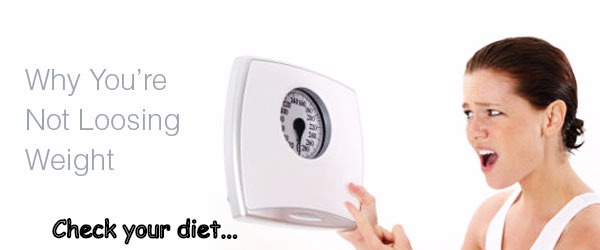 In the coming days I will be sharing my thoughts and experience on common weight loss mistakes to avoid. Many dieters tend to make some mistakes in their effort to lose weight. As a result becoming more conscious of these mistakes could have tremendous impact in achieving success on weight loss. Being aware of the mistakes will help you make small physical and mental changes that are required to achieve your desire result. Some of the tips I will be sharing here are also applicable to people that want to effectively manage diabetes while living a healthy lifestyle. So, let’s zoom off to the first mistake.
In the coming days I will be sharing my thoughts and experience on common weight loss mistakes to avoid. Many dieters tend to make some mistakes in their effort to lose weight. As a result becoming more conscious of these mistakes could have tremendous impact in achieving success on weight loss. Being aware of the mistakes will help you make small physical and mental changes that are required to achieve your desire result. Some of the tips I will be sharing here are also applicable to people that want to effectively manage diabetes while living a healthy lifestyle. So, let’s zoom off to the first mistake.
Skimping on protein
One of the most common weight loss mistakes to avoid is skimping on protein. I am of the opinion that having a balanced amount of protein in your diet is the simplest and most effective way to lose weight with little effort. The mistake of not eating enough protein became more rampant during the low-fat food craze of the late 1980s. During this time people became more afraid of protein because it was linked to higher-fat diets. As a results many trendy diets limited protein to 2 ounces per meal. This has a detrimental effect on weight loss. When you are not eating enough protein your body has to burn its own muscle for fuel. As a result you will end up having a decreased lean muscle mass which invariably mean less calorie-burning action too. At the same time, not having enough protein in your diet means you won’t be able to build more muscle mass (to burn calories). Research has also shown that diets that are low in protein causes increased sugar cravings, which I believe you will agree with me definitely make weight loss more difficult. Now, you know why skimping on protein is not good, but I think it is still important to know why you need protein for weight loss.
Protein and Body metabolism
One of the most popular weight loss products in the last few months not is Metabolic Explosion by Dan Faggella. This weight loss program was based on the concept of finding natural ways to increase body metabolism in a way that can put weight loss or fat loss in automation. Having enough protein in your diet does similar thing. Because protein requires energy to metabolize, a high protein diet can increase calories burned as much as 100 calories in a day. A study published in the British Journal of Nutrition in November 2010 concluded that appetite suppression and fat oxidation were higher on a high-protein diet without than with carbohydrates exchanged for fat. Another study in the American Journal of Clinical Nutrition also concluded that High-protein increase energy expenditure by forty two percent.
Another comprehensive study published by American Society for Clinical Nutrition reported that “an increase in dietary protein from 15% to 30% of energy at a constant carbohydrate intake produces a sustained decrease in ad libitum caloric intake that may be mediated by increased central nervous system leptin sensitivity and results in significant weight loss”. In summary, this study showed that people who ate 30% of calories as protein inevitably ate nearly 450 fewer calories per day. This means you can easily increase calories you burn out and reduce calories you take in just by adding protein to your diet.
How does protein diet do this? Well, first High-protein foods take more work to digest, metabolize, and use. This invariably means you burn more calories processing them. As you must be aware also, high protein food also take longer to leave your stomach. As a result, you will tend to feel full sooner and even for a considerable longer amount of time also. It is the combination of these effects that results in tremendous weight loss benefits. By increasing your metabolic rate and helps reduce appetite, protein will help you achieve a more sustained weight loss. The weight loss guide by Dan Faggella called metabolic explosion did a justice in unravelling simple tricks that could help put weight loss on automation. You can learn more about the program in the link below.
Learn more about Metabolic Explosion System by Dan Faggella
You can also read more about the benefits of protein filled diet in some of my references below
